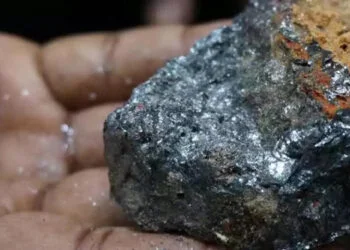Gabon is embarking on a transformative economic strategy, announcing plans to halt raw manganese exports by 2029 and ban chicken meat imports by 2027.
These policies aim to bolster local industry, create skilled jobs, and address persistent poverty in one of Africa’s wealthiest nations per capita.
As the world’s second-largest manganese producer, Gabon seeks to retain greater value from its natural resources, alongside oil and timber, by developing domestic processing capabilities and fostering self-reliance.
Phasing Out Raw Manganese Exports
Manganese is a critical revenue source for Gabon, has historically been exported unprocessed, limiting economic benefits.
By 2029, the government intends to end raw exports, mandating local transformation facilities to process the mineral domestically.
Industry stakeholders have three years to invest in these facilities, supported by a planned public-private investment fund.
This move is expected to create high-skilled jobs and increase export value, aligning with Gabon’s vision to diversify its economy beyond raw resource dependency.
Banning Chicken Imports to Boost Local Poultry
In a parallel initiative, Gabon will prohibit chicken meat imports starting in 2027 to stimulate domestic poultry production.
This policy aims to reduce reliance on foreign food supplies and create agricultural jobs.
Conversely, while Gabon enjoys a high per capita income compared to many African nations, a significant portion of its population remains impoverished, highlighting the urgency of these reforms to tackle economic inequality.
Addressing Economic Inequality
Despite its resource wealth, Gabon faces stark disparities, with poverty affecting a large segment of its 2.3 million population.
The government’s broader reform agenda seeks to bridge this gap by fostering self-reliance and sustainable growth.
By prioritizing local processing and production, these policies aim to retain economic value within Gabon, fund social programs, and reduce dependence on volatile global markets.
A Model for African Economic Transformation?
Gabon’s ambitious plans could serve as a blueprint for other resource-rich African nations, as the success of these reforms hinges on effective implementation, including timely investments in infrastructure and training.
As the 2029 and 2027 deadlines approach, Gabon’s progress will be closely watched, potentially reshaping its economic landscape and inspiring similar strategies across the continent.























